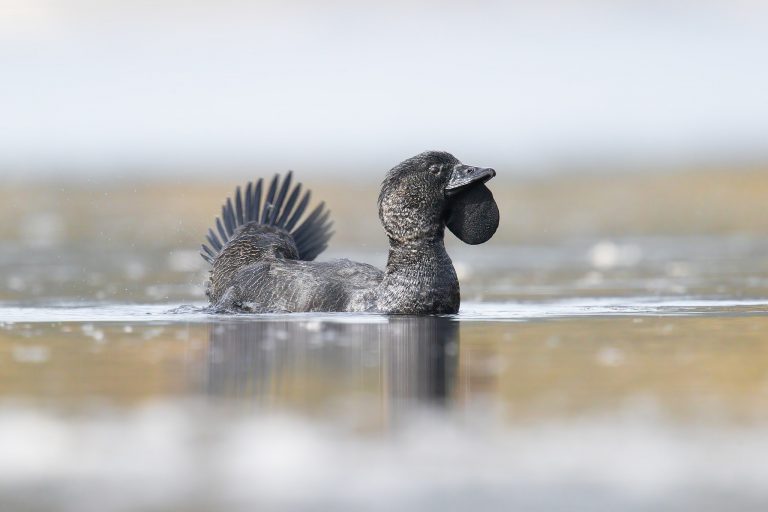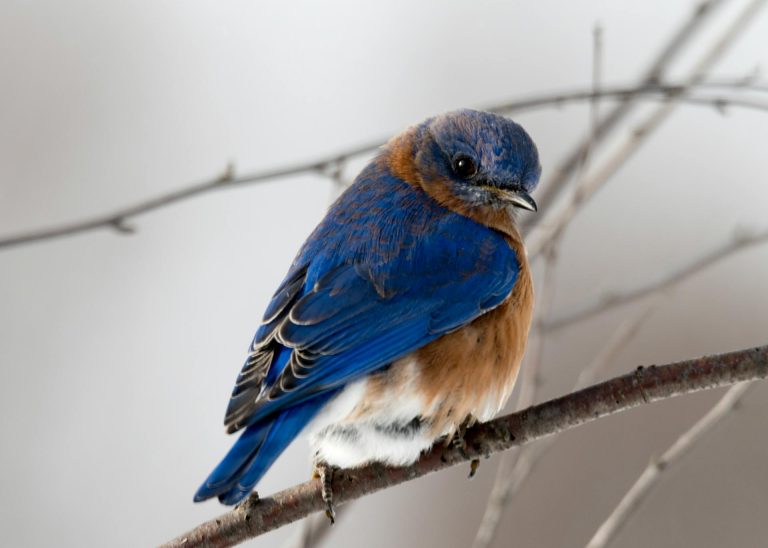While we are all familiar with talking parrots, and even the odd talking raven, these birds are exceptional at mimicking, and it often takes years of training for them to form recognizable words. So who would guess that a duck might take up speech as well?
One duck in Australia has done just that. Its phrase is neither profound nor kind, yet it certainly has amusement value, and caught the attention of a Dutch scientist.
Ripper the musk duck
The musk duck, mainly found from north-west Western Australia through to Queensland, is among the strangest-looking of the country’s waterbirds. Under its bill, the male duck has a wobbly lobe dangling down. Inflating the lobe, the duck also fans its long, rigid tail to attract mates. Musk ducks get their name from the strong odour produced from a gland on the rump.
One musk duck, nicknamed Ripper, caught the attention of Leiden University scientist Carel ten Cate, who was interested in its ability to produce an almost humanlike sentence. Male musk are normally solitary creatures, but Ripper was an exception, as he was raised by humans at a bird park in Australia. It can be assumed that this is where he learned some human phrases.
Upon first hearing some old recordings of Ripper, ten Cate thought they were fake. However, the recordings were genuine; made by ornithologist Peter Fullagar, co-author of Ten Cate’s research that was published in the Netherlands’ Philosophical Transactions of the Royal Society journal.
Success
You are now signed up for our newsletter
Success
Check your email to complete sign up
Fullagar had first recorded Ripper using a Sony Walkman recorder and a Sennheiser microphone on July 19 and 26, 1987. The duck was not only able to produce something like a sentence, but it also mimicked the sound of a slamming door, along with small speech-like mumbles. Among the sounds it made, the most interesting sounded like,
“You bloody fool!”
The recordings were kept at the Australian National Wildlife Collection, where they went untouched until ten Cate found them decades later.
“It’s definitely based on the human voice, even though the pronunciation is a bit odd – which might be the Australian accent, I don’t know,” said ten Cate.
Fullagar also made a recording of another male duck in June 2000, using more recent technology. The duck was also able to make similar sounds to Ripper’s, possibly because they had met in the past.
What was that, again?
Fullagar and ten Cate then created sonograms of the sounds made by Ripper and the second duck. The sonograms were analyzed, and were found to be almost identical to each other.
While it was amusing to think Ripper would use such vulgar language, ten Cate believes that he might have been saying ‘food’ instead of ‘fool.’
“I can imagine that the caretaker would jokingly say, ‘Here’s your bloody food.’” said ten Cate.
Taking observations of vocal differences between other captive ducks, it is believed that there is a level of “advanced vocal learning” that is on par with songbirds and parrots.
“To find a species quite outside these groups… in a duck, that’s quite extraordinary. So it’s an independent evolutionary occurrence of the ability for vocal learning – that’s very special,” ten Cate said.
Ten Cate also believes that the musk duck might have adopted this unique ability to copy its caretaker due to the species’ tendency to stick to the one it perceives as its parent figure. Thus, it is likely that individual ducks, such as Ripper, may form strong bonds with their human guardians.
“The long dependency might also be accompanied by a more gradual development of neural systems, providing the scope for a larger impact of experience (learning) on behavioral development.” ten Cate stated in his study.
So that is the story of the talking duck(s). If there is a lesson to be learned, perhaps it is that we should watch our mouths; not only around children, who will readily repeat whatever they hear, but also around animals; for you never know when those words might come back to haunt you!







